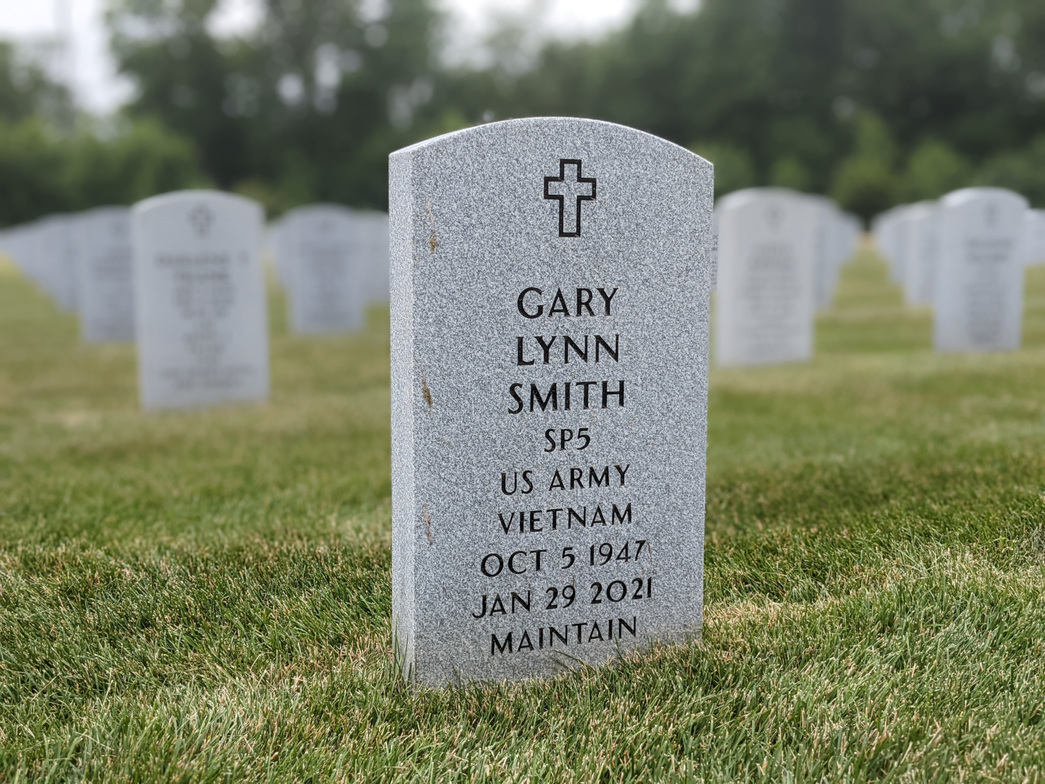
When I was a kid, my sister and I were responsible for raising and lowering the U. S. flag every day. My dad had put up a flag pole and taught us how to fold the flag properly. Every morning before school, we put it up. Every evening, we took it down, folded it, and put it in the cabinet beside the TV in the living room.
When I was 10, we took a family trip to Washington, DC, and I glimpsed in my dad at least part of why the flag was important to him. It was when we visited the Vietnam War Memorial, and as he searched for the names of his family and friends, he wept. It was just the second time in my life I had seen him cry.
My dad served in the U. S. Army during the Vietnam War. He was stationed in Schweinfurt, Germany. And while he never said so, I think he held complicated feelings about this--that he was there, while others were on the frontlines in Vietnam. I think this and more was behind his emotion at the memorial.
Memorial Day began as a remembrance specifically for soldiers who died in the Civil War. One of the first happened just weeks after the war ended, on May 1, 1865, in Charleston, South Carolina. Freed black enslaved people and some white missionaries organized a commemoration of black and white Union soldiers who had liberated Charleston and others who died in the Confederate prison camp there. Ten thousand came and marched. A few years later, Decoration Day began to be marked across the country, and in 1882, American poet Henry Wadsworth Longfellow wrote this poem.
Decoration Day
Sleep, comrades, sleep and rest
On this Field of the Grounded Arms,
Where foes no more molest,
Nor sentry's shot alarms!Ye have slept on the ground before,
And started to your feet
At the cannon's sudden roar,
Or the drum's redoubling beat.But in this camp of Death
No sound your slumber breaks;
Here is no fevered breath,
No wound that bleeds and aches.All is repose and peace,
Untrampled lies the sod;
The shouts of battle cease,
It is the Truce of God!Rest, comrades, rest and sleep!
The thoughts of men shall be
As sentinels to keep
Your rest from danger free.Your silent tents of green
We deck with fragrant flowers;
Yours has the suffering been,
The memory shall be ours.
Today we hear Jesus say, "My peace I leave with you. My peace I give to you. Not as the world gives do I give to you." Our Crucified and Risen Savior gives peace to all who die in war and to all who live in and beyond it. In forgiving the very soldiers who crucified him, Christ forgives and consoles all soldiers. Christ banishes voices of guilt and shame, including survivors' guilt. Christ welcomes home the dead and living together in God's own heart. In Christ is the peace that ends war forever--in the world and in our hearts. Christ's peace dries every tear, raises the dead to new life, and sends us in peace for peace. In Christ's peace, we remember that no life is ever given in vain, and that there is no death without resurrection.
Thanks be to God.
